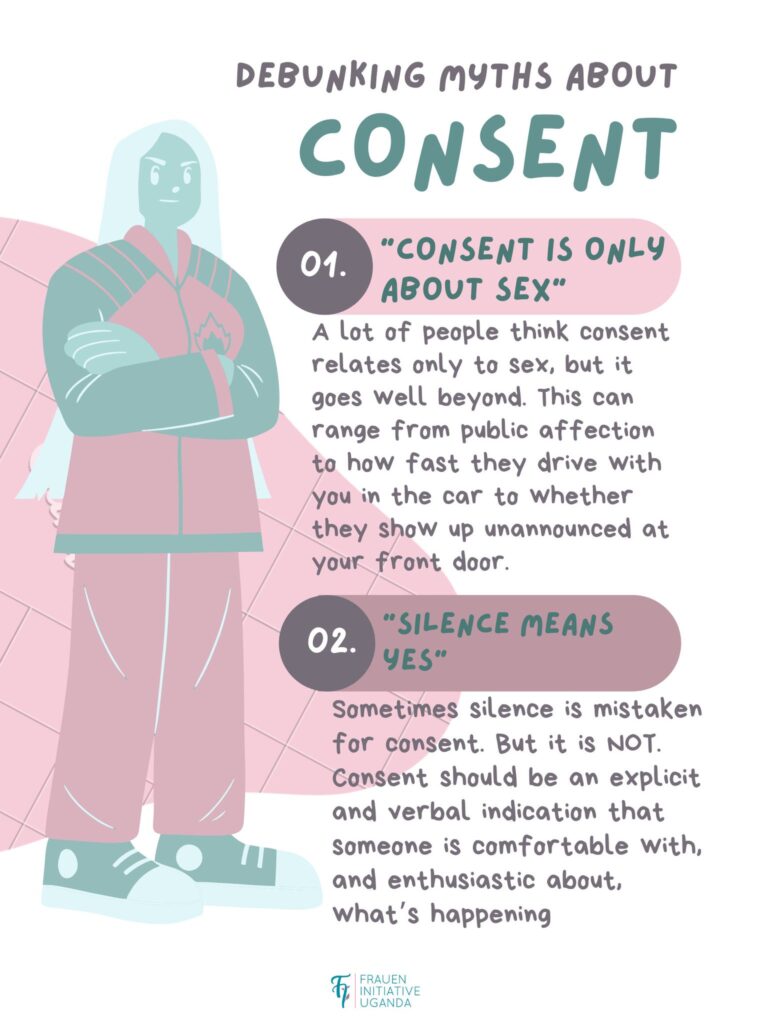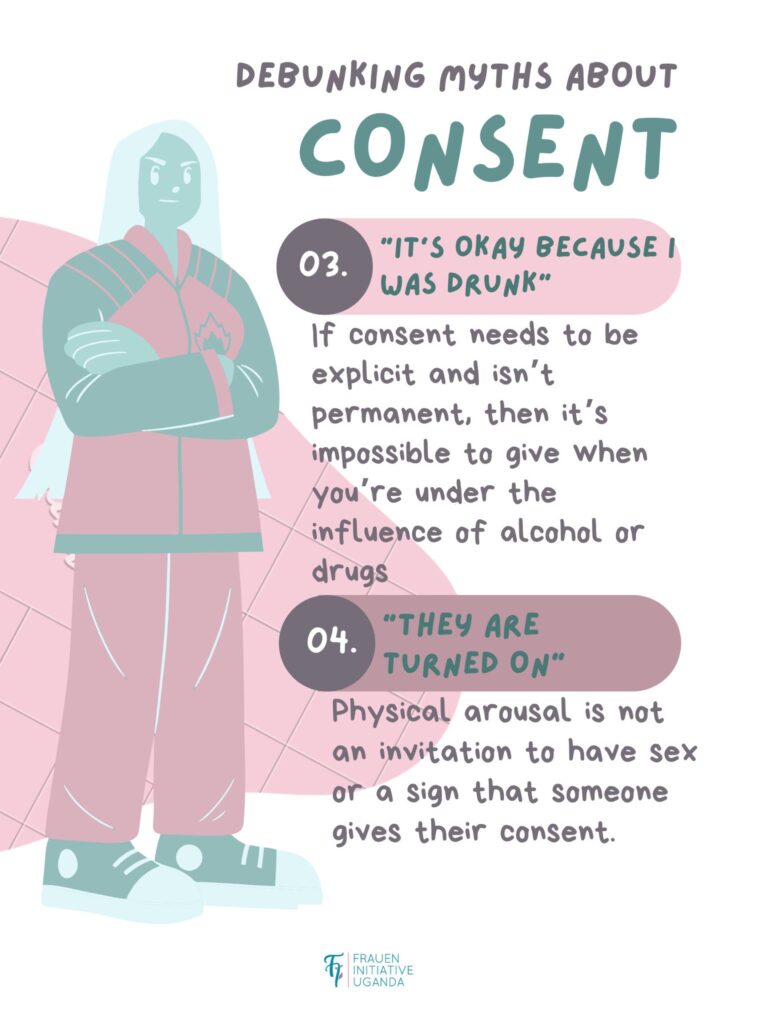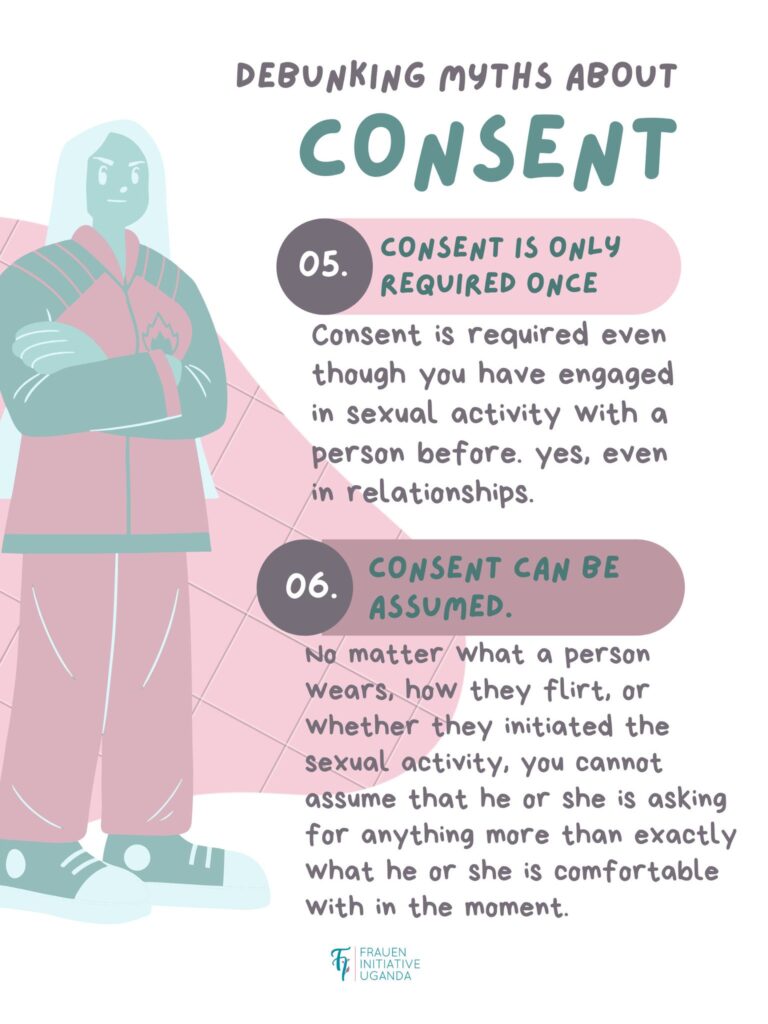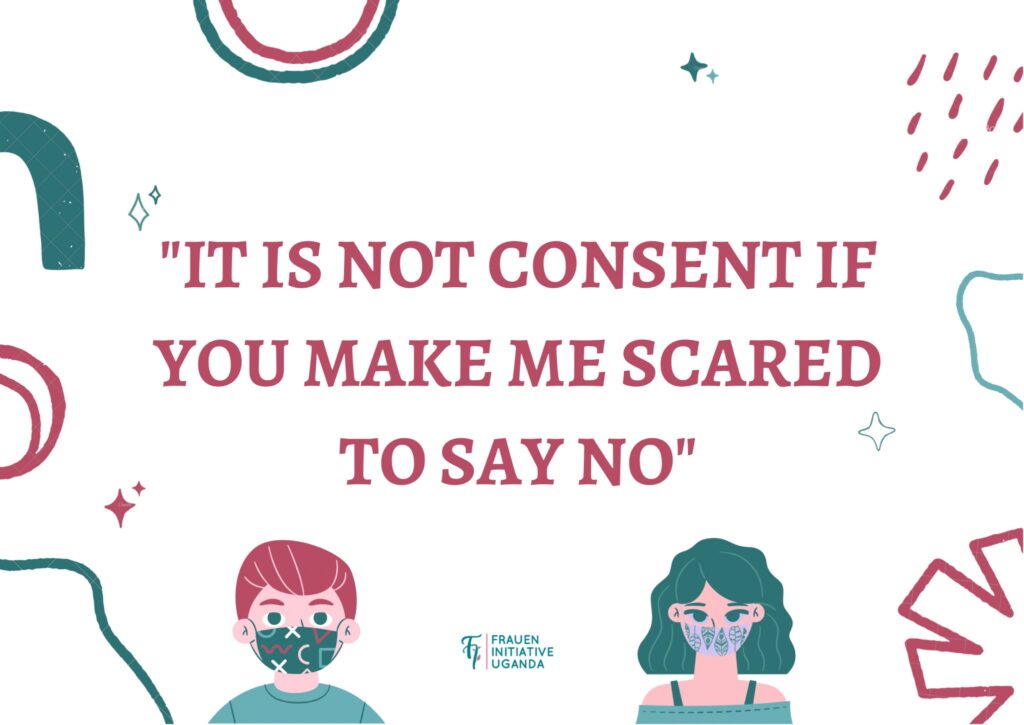- contact@fraueninitiativeuganda.org
- Mon - Sat: 8:00-5:00pm
Menu
Consent is an agreement between participants to engage in sexual activity. Consent should be clearly and freely communicated. A verbal and affirmative expression of consent can help both you and your partner to understand and respect each other’s boundaries.
Consent cannot be given by individuals who are underage, intoxicated or incapacitated by drugs or alcohol, or asleep or unconscious. If someone agrees to an activity under pressure of intimidation or threat, that isn’t considered consent because it was not given freely. Unequal power dynamics, such as engaging in sexual activity with an employee or student, also mean that consent cannot be freely given.
Consenting to one activity, one time, does not mean someone gives consent for other activities or for the same activity on other occasions. For example, agreeing to kiss someone doesn’t give that person permission to remove your clothes. Having sex with someone in the past doesn’t give that person permission to have sex with you again in the future. It’s important to discuss boundaries and expectations with your partner prior to engaging in any sexual behavior.
You can withdraw consent at any point if you feel uncomfortable. One way to do this is to clearly communicate to your partner that you are no longer comfortable with this activity and wish to stop. Withdrawing consent can sometimes be challenging or difficult to do verbally, so non-verbal cues can also be used to convey this. The best way to ensure that all parties are comfortable with any sexual activity is to talk about it, check in periodically, and make sure everyone involved consents before escalating or changing activities.






Time is Up!

Time's up
WhatsApp us
Leave a Reply
You must be logged in to post a comment.